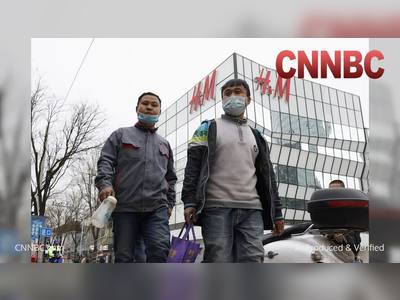Yachts, Private Jets, and a Picasso Painting: Exposed as 'One of the Largest Frauds in History'
The United States has filed an indictment against Chen Zhi, the thirty-eight-year-old chairman of Prince Holding Group, accusing him of orchestrating one of the largest cryptocurrency frauds in history, valued in the tens of billions of dollars, and of using the proceeds for personal luxury. According to the indictment unsealed on Wednesday, Chen and unnamed associates defrauded investors and spent the illicit gains on yachts, private jets, and even a Picasso painting.
In addition to the indictment, authorities in the United States and the United Kingdom imposed sanctions on the group, which operates in real estate and financial services, while the U.S. Treasury Department designated it as an “international criminal organization.” Assistant Attorney General John Eisenberg described Chen as “the mastermind behind this vast fraud empire,” and U.S. Federal Prosecutor Joseph Nocella called the case “one of the largest investment frauds in history.”
According to the charges, the group established at least ten compounds in Cambodia where workers—many of them kidnapped migrants—were forced to contact victims via social media, build trust, and persuade them to transfer cryptocurrency under the guise of profitable investments. The funds were instead funneled into the group’s other businesses and shell companies, financing luxury flights, watches, villas, rare artworks—and even a Rolex for the wife of a senior executive. One victim reportedly lost more than four hundred thousand dollars in cryptocurrency.
The compounds were described in the indictment as “forced-labor camps” equipped with dormitories surrounded by barbed-wire fences and automated call centers operating hundreds of phones running tens of thousands of fake profiles. According to the U.S. Treasury Department, workers were kept in isolation, frequently beaten, and denied communication devices after being lured by false technology job offers. Photos included in the indictment showed a man with an open facial wound, dozens of men chained to the ground, and others bearing red lash marks. In at least one instance, Chen personally approved the use of violence against a worker but instructed “not to kill him.” Witnesses reported that those who tried to escape were beaten “nearly to death.”
United Nations estimates suggest that around one hundred thousand people in Cambodia, one hundred twenty thousand in Myanmar, and tens of thousands more in Thailand, Laos, and the Philippines were forced to work in online fraud operations during twenty twenty-three.
According to the U.S. Treasury Department, American citizens lost at least ten billion dollars in twenty twenty-four to scams originating from Southeast Asia—a sixty-six percent increase over the previous year—with Chen’s group described as a “dominant player” in the field. Meanwhile, Chinese authorities have been investigating the company since twenty twenty for cyber fraud and money laundering. Chen, born in China and also known as “Vincent,” remains at large. If convicted, he faces up to forty years in prison.
The United States may compensate victims using the one hundred twenty-seven thousand two hundred seventy-one Bitcoin seized from the holding group, each valued at approximately one hundred eleven thousand dollars. Dr. Jacob Daniel Simms, an international crime expert at Harvard University, stated that the group is “part of the infrastructure enabling global cyber fraud” and that Chen is “a key player in the criminal economy operating in coordination with the Cambodian government.” Chen served as an adviser to Cambodian Prime Minister Hun Manet and holds an honorary national title equivalent to that of a British lord.
According to Simms, the American measures “do not immediately dismantle these networks, but they shift the balance,” potentially making “every bank, real estate company, and global investor think twice before touching the money of the Cambodian elite,” among whom the country’s highest leaders are allegedly involved and providing government cover.











